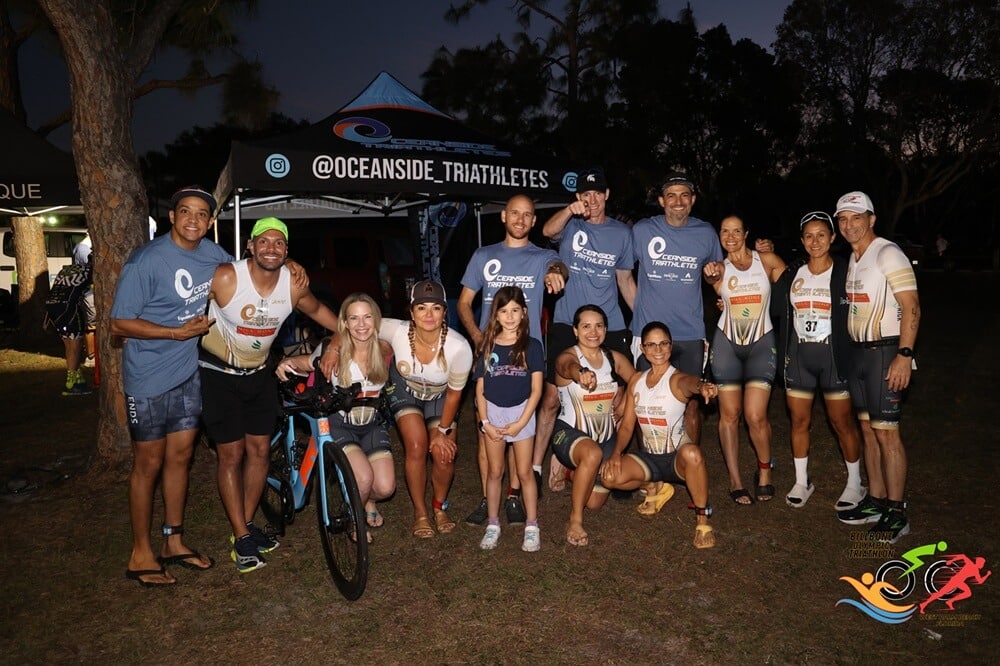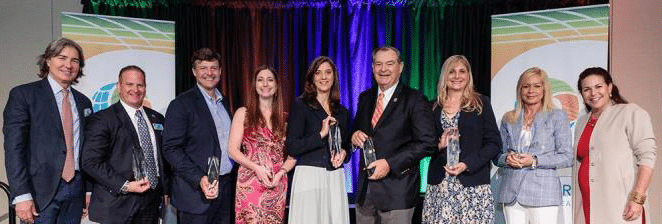About Bill Bone
Trial Lawyer Advocate Cyclist Legal Specialist Sponsor Chairman Philanthropist Triathlete
Giving Back That is the personal mantra of Bill Bone
Giving back is the mantra that guides Bill Bone in every aspect of his life, including his passion for cycling his service as a volunteer leader in the community and his accomplishments as one of Florida’s best known and most successful trial lawyers. In his three decades of legal practice, Bill Bone has earned a well-deserved reputation as a staunch, courageous, and powerful advocate for those affected by automobile accidents, bicycle crashes, wrongful death, medical malpractice and other personal injuries.
As co-founder of the law firm of Larmoyeux & Bone with main offices in West Palm Beach and principal of Bill Bone Bike Law with affiliate offices throughout Florida, he has successfully represented over a thousand clients obtaining settlements and jury awards of more than a hundred million dollars. Mr. Bone is admitted to practice in all the state courts of Florida and certified as a specialist in Civil Trial Law by the Florida Bar. He is past chairman of the Plaintiff’s Personal Injury Law Committee, Law Week, and the public relations committee for the Palm Beach County Bar Association.
Awards & Recognition




Super Lawyers has recognized him as one of the nation’s best in his field, and Martindale-Hubbell, the preeminent independent rating publication, has repeatedly awarded him and his firm the highest accolades in legal ability and ethics. Law and Leading Attorneys: A Florida Consumers Guidebook named Mr. Bone an outstanding practitioner in the top 5% of all Florida attorneys and both Google and Avvo document his client ratings as the highest and best among his legal peer group.
But a commitment to his profession is just part of the Bill Bone dedication to the public good: Every day, he lives his personal philosophy to make the community more just, equitable, and compassionate.
Bill Bone serves as campaign chairman of Palm Beach County Do the Write Thing Challenge, the local chapter of a nationwide project helping middle-school students understand youth violence and forward their own creative solutions. Bill Bone is a member of the educational advisory committee of the Kravis Center for the Performing Arts, which ensures that school children experience world-class concerts and plays regardless of their ability to pay. In 2016 the Palm Beach Police Foundation awarded him its Distinguished Service Medal and in 2017, Bill Bone was honored by the Education Foundation as one of Palm Beach County’s most Distinguished Alumni.
A lifelong Floridian, Bill Bone is a trustee of the Levin College of Law, University of Florida, where he helps build philanthropic support for the law school he attended. On graduation from the University of Florida Bill Bone was named to the University Hall of Fame for his student accomplishments. More recently, he served as chairman of the Palm Beach Centennial Commission, which planned the Town’s 100th-anniversary celebration in 2011 and then helped raise over a million dollars to renovate the Town Square and restore the iconic Addison Mizner-designed seahorse fountain in the center of Palm Beach Island. As past president of Rotary Club of West Palm Beach, Bill Bone remains an active member of this world-wide, volunteer-led, civic and charitable organization for business professionals.
Bill Bone is an enthusiastic recreational cyclist and dedicated fan of the sport as the lead sponsor of the Bill Bone Pro-Am Race Series, the Bill Bone Racing Team, Bill Bone Twilight Race Series and the Bill Bone Tropical Triathlon, which unite and support amateur cyclists and pro athletes of all ages throughout Florida. Uniting his love for Florida’s natural beauty, his athletic spirit, and his commitment to justice, Bill Bone is also one of the state’s leading practitioners in the emerging field of bicycle law and he regularly advocates for changes in state-wide and local laws to protect cyclists.
Timeline of Events & Accomplishments
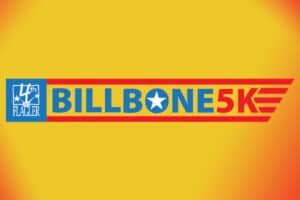
The Bill Bone 5K

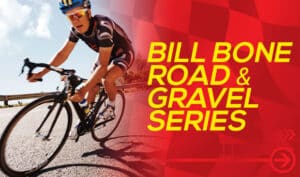
The Bill Bone Road & Gravel Series

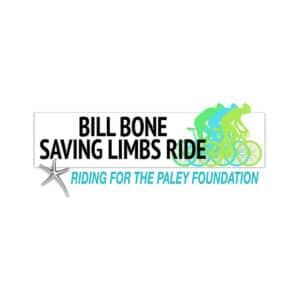
The Bill Bone Saving Limbs Ride


Bill Bone Bike Law


Bill Bone Pro Am Race Series

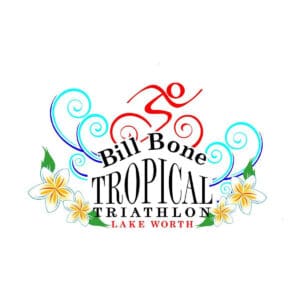
Bill Bone Tropical Triathlon

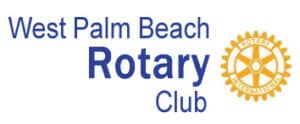
Treasurer of the West Palm Beach Rotary Club


Larmoyeux & Bone, P.L.

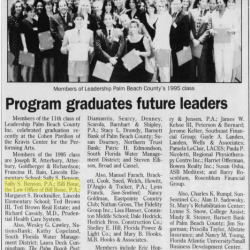
Graduate Member of Leadership Palm beach County

The Law Office of Bill Bone P.A

Lytal & Reiter

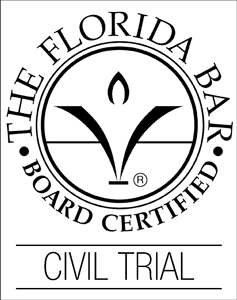
Admitted to the Florida Bar


Florida College of Law


Attended the University of Florida

History of Bill Bone Cycling
Bill Bone Cycling is the oldest and largest ongoing series of cycling Teams and Events in Florida. It is named for Bill Bone, a Trial Lawyer by profession, with a passion for recreational and competitive cycling in all forms. The first Bill Bone Racing Team traces its roots back to 1990 when Motorola Telecommunications Company assumed sponsorship of the International 7-Eleven Team. That premier team competed in the Tour de France with a core component of American riders such as Steve Bauer (Bauer is Canadian), Andy Hampsten, Frankie Andreu, George Hincapie and Lance Armstrong.
Bill Bone was never part of the International Motorola Team, but Motorola had a manufacturing facility in Boynton Beach, Florida, since 1985 near where Bill Bone grew up. In cooperation with the international team, a handful of Motorola employees and Palm Beach County cycling enthusiasts convinced the company to sponsor a local team. Bill Bone joined the team as a co-sponsor and rider, though he has always admitted to being much better at lawyering than cycling.
When Motorola ended its sponsorship of all cycling teams, the local group became known as the Bill Bone Racing Team, which remains today as the oldest continuously operating Bike Team in the State. Members of the Team included National Champions Debra Vanderlaan and Joann McCranels, Florida State Champions David Vanderlaan, Carol Hassell and Mark Hassell.
Simultaneous with his rising notoriety and success as a Trial Lawyer representing injured car crash victims, Bill Bone expanded his support of cycling to include the founding of the Bill Bone Pro-Am Race Series in 1991. That series has changed over the years depending upon demand and interest, but it continues to sponsor races in multiple venues throughout Florida for riders of all ages and ability.
In addition to road races, Bill Bone has sponsored a series of different Gran Fondo style touring events so riders can enjoy long distance rides with the goal of improved safety and support. Bill Bone Cycling sponsors the State Championships in each of the organized cycling divisions from Criteriums, Gravel, Time Trials to Track Events. And Bill Bone sponsors several running and multi-sport racing events such as the Bill Bone 5k and the Bill Bone Tropical Triathlon to provide cross-training opportunities for athletes.
In 2020, Bill Bone Cycling added gravel rides to its annual calendar of events. The addition of gravel events was in recognition of the rapidly growing interest and participation in gravel riding, which has been the hottest trend in cycling for the past several years.
We Love and Support Cycling
Bill Bone Cycling proudly supports cycling in every form from kids learning to ride their first bike with training wheels up to Olympic-caliber riders and everyone in-between. We’re enthusiastic about cycling and the many benefits cycling provides to riders, the community, and the planet.
It’s well-known that cycling can produce a long list of health benefits for riders, including weight management, strengthen legs and core, lower cholesterol, increase mental acuity and wellbeing, improve cardio, increase coordination, and reduce risk of diseases.
Cycling also helps local communities by improving riders’ health and creating a greener environment. Cycling creates a more attractive and livable community. Studies have shown that bike-friendly communities tend to enjoy higher levels of mental health and wellbeing. Bike infrastructure makes the streets safer for everyone—cyclists, pedestrians, and drivers.
Cycling also has economic benefits. Research has shown that bike-friendly communities have higher property values, with median home prices rising the closer a home is located to an off-street bikeway. Bike-friendly communities also enjoy increased retail activity at non-bike related retail stores as cyclists stop at local shops along their route, and studies have shown that cyclists are likely to be repeat customers at their local shops.
In addition to improving the health of cyclists and their local communities, cycling also helps improve the health of our planet. Some of the ways replacing a few car trips with bike rides helps our planet include less harmful emissions that pollute the air, less harmful chemicals leaked such as antifreeze and brake fluid, more bikes mean fewer roads have to be built, and reduced noise pollution.
These are just a few of the reasons we love cycling and are committed to supporting it in all its many forms.
Gravel Riding
For those who are unfamiliar with gravel riding, its basic concept is just getting on your bike and riding unpaved (dirt and gravel) roads and trails. It’s not really anything new; it combines elements of both road and mountain biking. Regardless of whether it’s dirt or gravel roads, trails must consist of non-technical and unsurfaced roads to qualify as gravel riding. Because such trails are not usually found in cities, most gravel riding is done in more rural areas surrounded by plenty of natural beauty. Canal paths, forest roads, and old wagon trails are some common examples of gravel riding trails.
There are many reasons why gravel riding has enjoyed its meteoric rise in popularity. But one of the most widely cited reasons is that it’s just plain fun and exciting. Gravel riding adds an element of thrill and a sense of potential danger to the cycling experience. Fans love it for the exhilarating discoveries while riding, and the natural scenery make it an esthetically pleasing journey. With thousands of miles of unpaved roads, the possibilities for exploration and adventure are practically limitless.
Gravel riding isn’t a passing fad. It’s here to stay because it offers something for everyone. For thrill seekers and the adventurous types, gravel riding provides endless challenges and riding experiences from fast-rolling dirt roads to potholed, blown-out jeep tracks to washboards, ruts, exposed rocks, and sand bogs to primitive double-track and machine-cut singletrack. For others, gravel riding allows for a relaxed, safe, and thoroughly pleasant day on their bike without the anxiety of speeding vehicles only inches away. Gravel riding isn’t about getting from point A to point B; it’s about the thrill or serenity of the journey itself. That’s why more and more riders are “going gravel.”
Gravel racing typically takes place on open gravel roads, dirt double tracks, and serpentine singletracks, frequently with some stretches of paved roads to connect off-road segments. These races combine the endurance-testing lengths of road racing with the rugged terrain of mountain biking or cyclocross. Unlike other types of races, gravel races generally don’t categorize by ability, so they often involve a mass start instead of separate races for different ages, genders, and bike types. Despite being a competitive race, gravel racing generally emphasizes inclusivity and fun more so than more established types of cycling races.
There are three basic gravel racing formats: (1) single-stage, (2) enduro-style, and (3) multi-stage. In single-stage races, participants compete from start to the finish line like a mountain bike marathon race. Enduro-style races pit riders against the clock during specific segments of the course, and for the remainder of the race, participants can opt for a leisurely pace since winners are determined by the riders with the lowest aggregate times for the enduro sections. Multi-stage races involve multi-day racing that tests riders’ legs day after day.
Gran Fondos
Gran Fondo is an Italian term that’s roughly translated as “Big Ride.” They are mass participation cycling events that challenge the endurance of participants and have been popular for decades in Europe. The first Gran Fondo was the Nove Colli held on July 12, 1970, in Cesenatico, Italy, which is still going strong today as Italy’s largest cycling festival with 12,000 riders tackling distances of 80 km, 120 km, or 200 km over the course of the two-day event.
In the U.S., the first Gran Fondo events were organized in 2009, and recently, they have been growing in popularity in North America. As recently as 2010, there were only a few events throughout all of North America, but today, there are over 200 Gran Fondo events annually including the Bill Bone Burger Fondo, known for its fast police escorted pace and terrific burgers and beer at the finish.
Gran Fondos are for everyone, from recreational cyclists to hardcore professional riders. That’s a big part of their allure. With their festive atmosphere and large number of participants and spectators, they’re a giant party on two wheels. Whether you want to improve upon your personal best while enjoying the scenery with friends and teammates or your goal is to push your limits to the extreme and go for the win, Gran Fondos are the ideal ride for you and your group.
Riding the Road
Florida is a cycling paradise, but unfortunately, Florida consistently ranks as the deadliest state in the nation for cyclists. According to data from the National Highway Transportation Safety Administration, Florida has the highest fatality rate for cyclists in the entire country at 6.7 fatalities per million residents. That’s more than two-and-a-half times the national rate of 2.6 fatalities per million residents. Although Florida boasts some of the best weather for year-round riding and breathtaking scenery, it’s also home to some of the deadliest roads in the country for cyclists.
We at Bill Bone Cycling are delighted with the interest in and popularity of cycling in Florida, but it’s important to keep in mind that riding on public streets can be dangerous for cyclists, especially if you’re inexperienced and uninformed about the traffic laws and safety rules for cyclists sharing the roads with motor vehicles and pedestrians.
Everyone riding the roads must know and obey the rules of the road. For those new to road cycling as well as those who could use a refresher, here are our Top 10 safety tips.
- Obey the law – under Florida law, cyclists are considered drivers while on public streets and thus are required to obey the same traffic laws as motorists (see further below for rules of the road).
- Be predictable – make your intentions clear to everyone on the streets. Predictable behavior includes riding in a straight line without darting between stopped vehicles or making sudden or jerking movements, signaling turns, and checking behind you before turning or changing lanes.
- Be conspicuous – ride where you can be easily seen by others and wear bright colors, making eye contact with others to ensure they see you.
- Think ahead – anticipate what motorists, pedestrians, and other cyclists are likely to do next and act accordingly. Look out for potential hazards such as potholes, road debris, and turning vehicles.
- Be aware of surroundings – road signs and markings are static, but traffic is dynamic. It’s important that you take your cues from the entire dynamic environment and never let the paint (bike-specific markings) think for you.
- Ride with flow of traffic – as a vehicle on the road, you are required to ride with the flow of traffic, not against it. It’s also important to understand the broader traffic flow around you so that you are able to anticipate and place yourself in a position that makes it easier and safer for yourself and others on the road.
- Ride big – do not ride as far to the right as possible but rather as far as practicable. There’s a distinction. You are permitted by law to the full use of the lane that’s not wide enough to be safely shared by vehicles and bikes operated side-by-side. By riding big, you make yourself more visible to motorists, require them to give ample passing clearance by forcing them to use another lane to pass, and help avoid road hazards and provide space to maneuver in case a vehicle gets too close (see below for further discussion on riding big).
- Ride on the road – adult cyclists don’t belong on the sidewalk. It increases the risk of conflict and danger to you, motorists, and pedestrians.
- Wear a helmet – doing so reduces the risk of head injuries, and it can help make you more visible while riding. Under Florida law, anyone under 16 years of age is required to wear a bicycle helmet that is properly fitted and fastened.
- Maintain your bike – make sure that your tires are properly inflated, brakes are working, and chain working smoothly.
Like it or not, every time you take to the streets on your bike, you serve as a de facto ambassador for the entire cycling community. Cyclists are waging a campaign to win the hearts and minds of motorists in an effort to gain greater acceptance of bicycles sharing the roads, but riders who wantonly flout traffic laws seriously undermine those efforts as motorists frequently cite disobeying traffic laws by cyclists as a source of tremendous frustration. Let’s all do our part to help make the roads safer for everyone.
About Bill Bone
Bill Bone is a dedicated amateur cyclist and native Floridian who cares deeply about the safety of all cyclists. Uniting his love for Florida’s natural beauty, his athletic spirit, and his commitment to justice, Bill Bone is also one of the state’s preeminent practitioners in the field of bike law. He’s actively committed to Florida’s cycling community. He’s a passionate advocate for cyclists’ rights and actively promotes public awareness and safety campaigns.
Bill Bone gets it—what cyclists face on the road and the trail—because he’s nearly as passionate about cycling as he is about his law practice as a personal injury trial lawyer in the highly specialized field of bike law.
As principal of Florida-wide firm Bill Bone Bike Law and co-founder of the West Palm Beach law firm Larmoyeux & Bone, Bill Bone has successfully represented over thousands of clients, obtaining settlements and jury awards of more than a hundred million dollars.
Cyclists have a unique perspective of Florida streets. They are best served by a lawyer who shares that perspective through lived experiences.
Bill Bone shares that perspective of the world because he’s a cyclist, too. He understands the perils, challenges, frustrations, and exhilaration of the open road because he’s out there with you. He rides the congested, narrow roads of A1A and sees firsthand the shocking lack of civility from motorists and ignorance of the rules of the road. He knows the adrenaline rush of a fast-paced group ride and the feeling of a big tailwind. He experiences saddle sores and leg cramps. And he also knows about the simple joy of riding along and chatting with a buddy in the glorious Florida weather—just like you.
Ride Safe and Tailwinds
Bill Bone News
- All
- Bill Bone 5K
- News
- All
- Bill Bone 5K
- News
